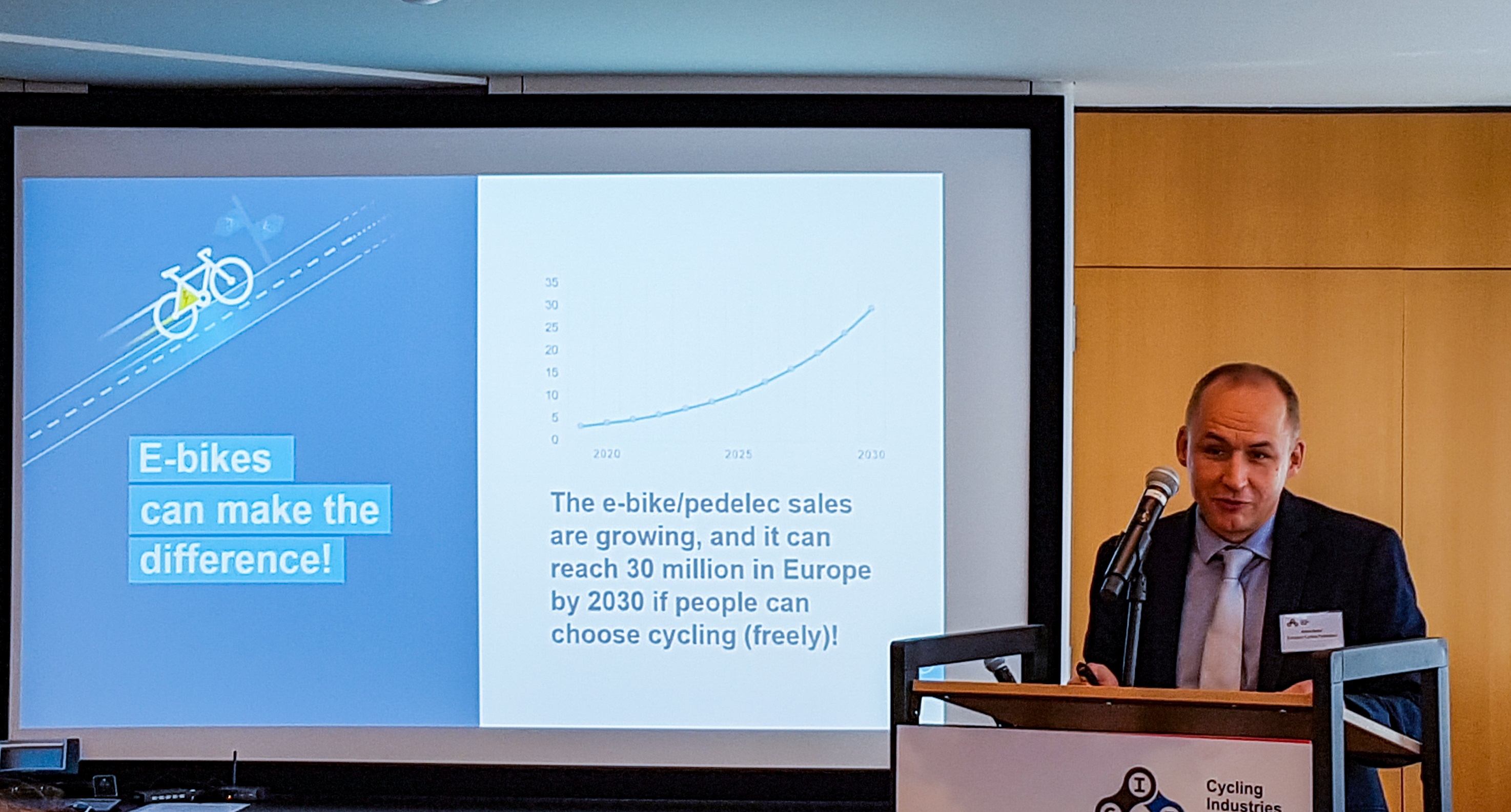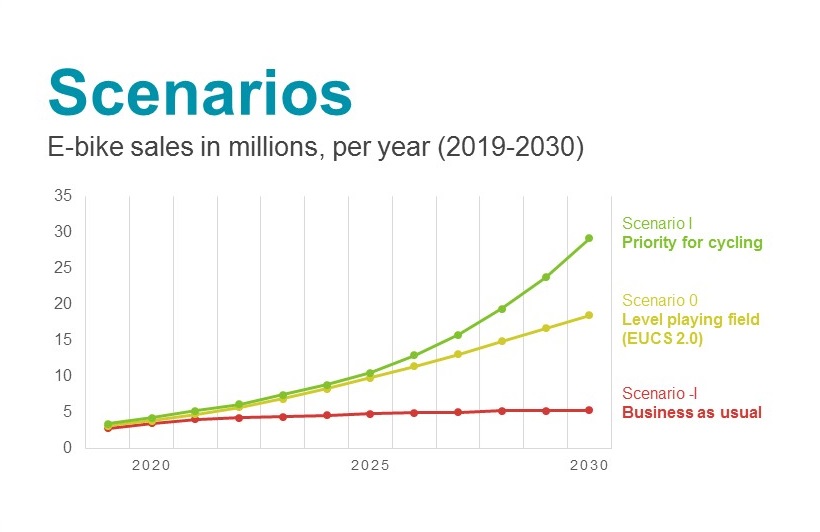
E-Bike Sales Can Reach 30 Million Unit per Year by 2030
Presupposing financial and regulatory priority for cyclists, experts predict e-bike sales to rise to 30 million. Due to an astonishing market upsurge of more than 20%, experts felt compelled to revise their numbers, which they originally envisaged to peak at 12 million in 2030 in case of level playing field for cycling.
At “Cycling Industries 2030 – taking the lead in new mobility”, the ECF engaged in debate and shared expertise with industry colleagues to examine these figures more closely. The overall message was hopeful yet determined: stay united and take advantage of this momentum. EU Commission head of unit for Service Transport, Jean-Francois Aguinaga, declared that it is “the right timing to take up the full potential of cycling” and the president of Cycling Industries Europe, Tony Grimaldi, predicted a “fantastic future” for the cycling industry. Nonetheless, looking beyond these inspiring words, it becomes evident that strong action needs to be taken to make these goals achievable. E-bikes cannot increase commuting reach without the necessary infrastructure – especially cycle highways - sales will not head off at the same speed without new fiscal incentives nor can any of these goals be reached without cross-sector support and a comprehensive change of policies.
EU representatives agree that cycling is key for sustainable mobility solutions
Solutions to these issues were put forward and the European Union assured support. Matthew Baldwin, Deputy Director-General for mobility and transport, praised cycling:
“Bicycles are the cleanest mobility solution on wheels and best solution for air pollution and congestion in cities”.
The general agreement was that a strategic mix of fiscal incentives, higher investment in infrastructure, policy shifts and most importantly a prioritization of cycling in Europe’s mobility system are crucial steps that need to be taken to keep up with the demands of the market. ECF Advocacy and Eurovelo director Adam  Bodor, presented three scenarios (see Figure 1), one business as usual (very moderate growth and some risks), the middle one (level playing field for cycling), as well as the third and best option, priority for cycling. A cycling friendly environment means 20% of transport investments are spent on cycling (10% in case of level playing field), Zero VAT for e-bikes, subsidies for e-bikes but none for e-cars, extra tax on car use, no obligatory insurance for e-bikes, no helmet laws and high parking fees. Last of all, these ideas need to become common practice!
Bodor, presented three scenarios (see Figure 1), one business as usual (very moderate growth and some risks), the middle one (level playing field for cycling), as well as the third and best option, priority for cycling. A cycling friendly environment means 20% of transport investments are spent on cycling (10% in case of level playing field), Zero VAT for e-bikes, subsidies for e-bikes but none for e-cars, extra tax on car use, no obligatory insurance for e-bikes, no helmet laws and high parking fees. Last of all, these ideas need to become common practice!
Reshaping the cycling industry
Part of increasing e-bike sales and creating a cycling friendly environment includes getting safety standards and bike sharing programmes up to speed. New mobility needs to build on the megatrend “Mobility-as-a-Service” (MaaS), Sebastian Schlebusch director of International Business for nextbike, explains that “bike sharing has the potential to normalize cycling in cities that do not have an active bicycle culture”. Moreover, several company car leasing schemes are now incorporating bicycles, which will make high-quality bikes affordable.
Addressing safety concerns Tina Caers, from Mobility Service in Antwerp, argued that accidents are caused by drivers, cyclists and the environment, but by drawing on knowledge and by collecting data from each of these parties one knows how to improve. As Matthew Baldwin wisely puts it, “we have to promote cycling safety every bit as hard as cycling”. To succeed in this endeavour, cross-sector cooperation is crucial; this also means alliances between the cycling industry and automotive industry. For example, Scott Kasin, director of electronics for TREK, presented technology such as Bike to Velo (B2V), where sensors will communicate the presence of cyclists to car drivers.
Uplifting voices from experts with the necessary know-how could be heard and high levels of motivation shaped the event. However, only cooperation between leading experts and the EU will lay the path to achieve 30 million e-bike sales in 2030. If this journey continues in a similar direction, we will not only see e-bike sales rise but far-reaching effects for the cycling sector that will be noticeable within our society as a whole.
Network/Project Involved:
Contact the author
Recent news!
Upcoming events
Contact Us
Avenue des Arts, 7-8
Postal address: Rue de la Charité, 22
1210 Brussels, Belgium









